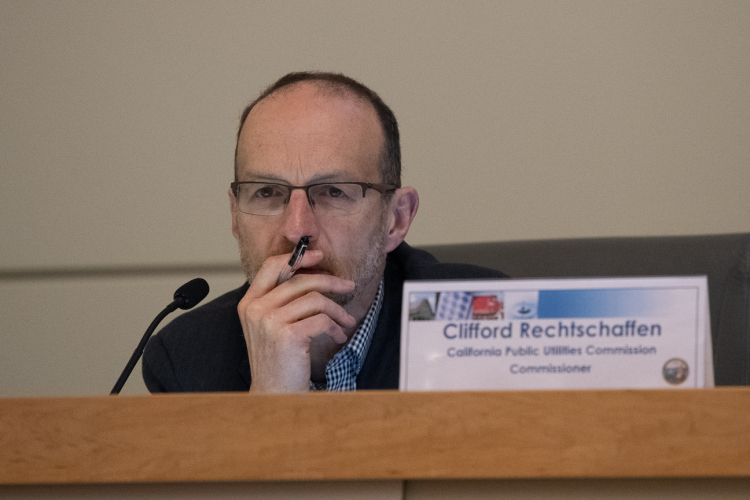Democrats failed to get enough votes to repeal the FCC’s undoing of net neutrality, but there’s still time to change some member’s votes.
“Verizon literally slowed access to the net when people were fleeing forest fires and checking their cell phones for updates on routes they should take.”
Some members of Congress are still attempting to use the Congressional Review Act (CRA) to stop the FCC’s repeal of net neutrality, which is meant to protect us from the financial motives of Internet Service Providers controlling the pipes that data travels through. I spoke to Tracy Rosenberg, the Executive Director of Media Alliance about what’s next.
Ann Garrison: Tracy, could you explain the CRA and how some Congress members have been trying to use it to prevent enactment of the repeal of net neutrality?
Tracy Rosenberg: Yes. The CRA permits Congress to take action to repeal what a regulatory agency has done. The use of the CRA to save neutrality passed the Senate some time ago, then sat in the House. We had a deadline of December 14 to get from 179 to 218 House votes, and we only got to 180, but the deadline has now been extended to the end of the Congressional session. So, what people can do is go to Battle for the Net, battleforthenet.com, where there’s a scorecard that will show you the representatives who have signed on and those who haven’t.
AG: Congress may extend its deadline to adjourn because Trump’s still pandering to his xenophobic base by demanding billions of dollars to turn the border fence into a wall. Is there any chance net neutrality could still be saved before Christmas?
TR: Procedurally yes, but it’s very unlikely. We’d still have to get 38 more votes. But pressuring any House members holding out is still a good thing to do because it demonstrates the will of the public and the majority of Congress.
AG: And what’s the next step if this fails?
TR: There are a number of different things going on that can bring us closer to saving net neutrality, aka an open internet. The lawsuit against the FCC is in court. It’s in the Third Circuit in D.C., and arguments will start in February of 2019. There are about 18 lawsuits that have been consolidated.
In the 2019 Democratic House, we should also have a very clear majority, so it is possible that new legislation can be put forward in both the House and the Senate to make net neutrality the law of the land. Congress has always had the power to overrule the FCC, so we can legislatively do what we were unable to do by repealing the FCC’s decision.
AG: There’ll be four more Republican Senators in January. Could they become a roadblock? Or is the Senate majority large enough to be secure?
TR: Republican Senators Collins and Kennedy flipped to our side last time. Assuming they don’t change their positions again, we’ll need to get a few more votes in the new, even more Republican Senate. On the other hand, the new Democratic House shouldn’t compel us to flip any votes, so our lobbying effort will precisely target the new Republican Senators.
AG: OK, lastly, could you remind us of what will happen if we lose net neutrality?
TR:We have lost it, unless you are a resident of one of the states that have passed statewide net neutrality laws. Those state laws should take effect if the courts kick back the FCC’s pre-emption lawsuits. So far, because the loss of net neutrality is being litigated and legislatively challenged, the telecoms and cable companies have been careful not to shut down the open internet too fast, but we’re getting occasional glimpses of what that will be like with Sprint throttling Skype, and Verizon slowing service to customers during catastrophic forest fires unless they upgraded service.
AG: OK, I want to make sure we fully understand that. Are you saying that Verizon literally slowed access to the net when people were fleeing forest fires and checking their cell phones for updates on routes they should take or help they might get from emergency responders?
TR: Yes, Verizon slowed wireless access in fire stricken areas. This meant slowed service not only to people fleeing the fires, but also to people still in their homes but checking for updates to see whether or not they needed to flee. Customers would see a button on their screens that they could press to upgrade. The same thing happened in Florida during hurricanes.
If the legal and legislative challenges to net neutrality fail, there’ll be more throttling and internet service providers will demand that consumers pay more for unfettered internet access.
Tracy Rosenberg is a social justice activist and the Executive Director of Media Alliance in the San Francisco Bay Area.
Ann Garrison is an independent journalist based in the San Francisco Bay Area. In 2014, she received the Victoire Ingabire Umuhoza Democracy and Peace Prize for her reporting on conflict in the African Great Lakes region. She can be reached at ann@anngarrison.com.
http://yourcialisrx.com/cialis_jelly.html
http://yourcialisrx.com








